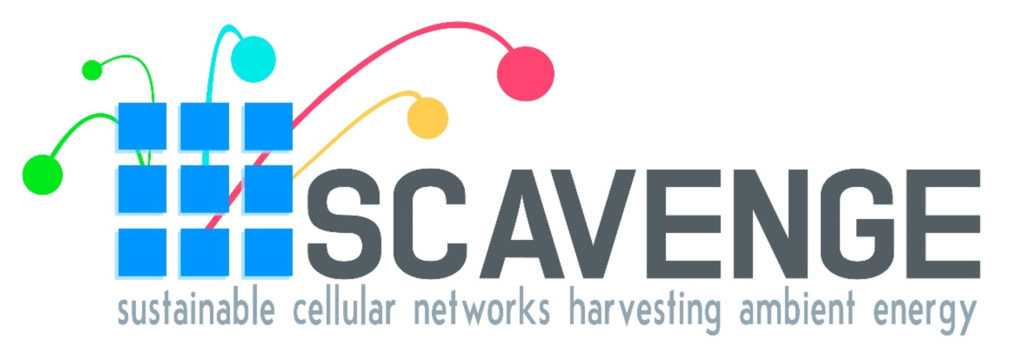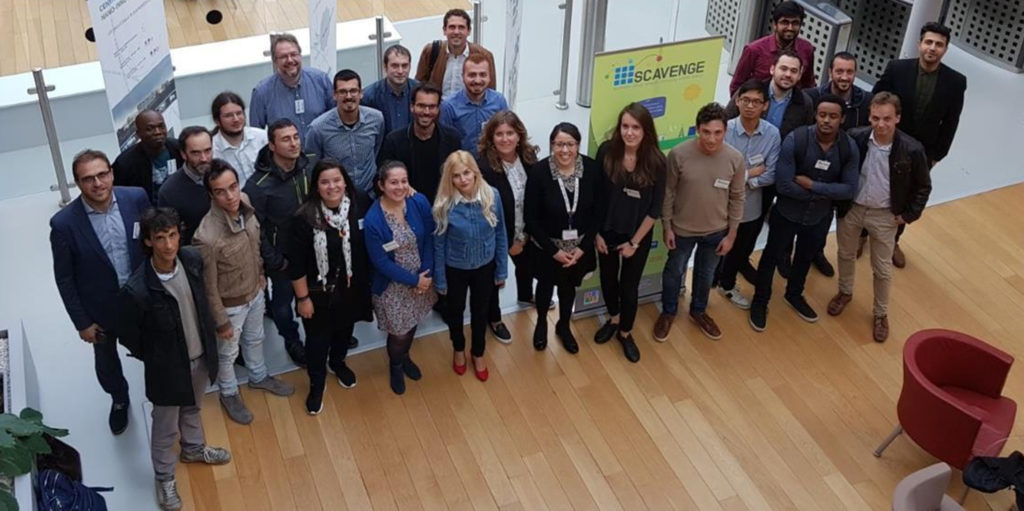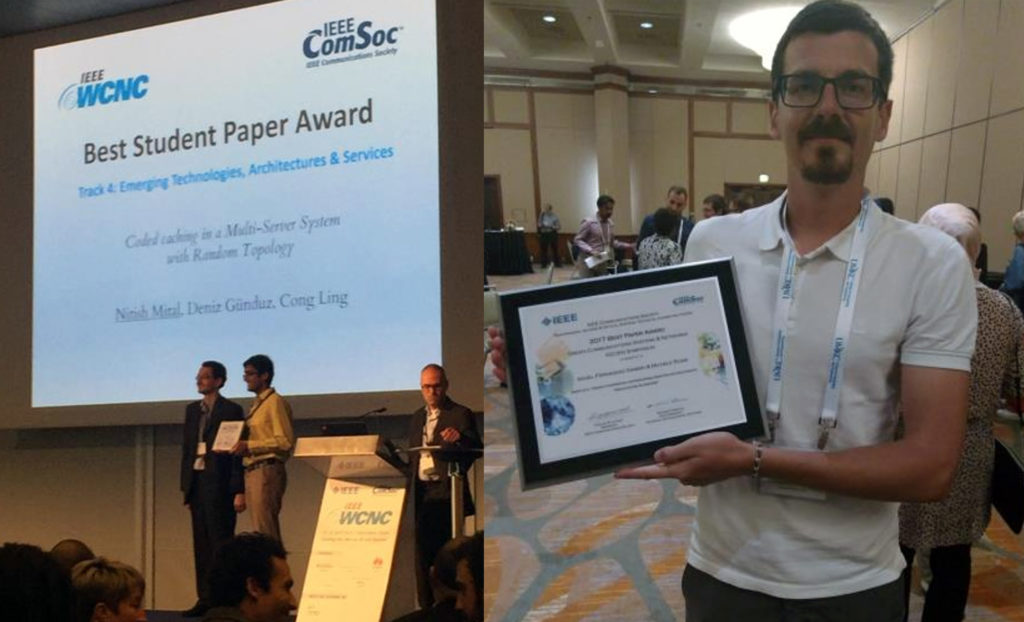Sustainable Cellular Networks Harvesting Ambient Energy
SCAVENGE tackles sustainable design, architectures and algorithms for next generation cellular networks. Our purpose is to allow mobile systems to take advantage of sources harvesting ambient energy (such as renewables). Besides, SCAVENGE sets up a training network for early-stage researchers, who will contribute to the design and implementation of sustainable mobile networks, and lead the related key scientific, technological, and industrial initiatives.

The objective of the SCAVENGE project is to create a training network for early-stage researchers, who will contribute to the design and implementation of eco-friendly mobile networks. In particular, we have introduced the concept of Sustainable Mobile Network, based on the premise that environmental energy can be scavenged through dedicated harvesting hardware, so as to power the mobile system elements like base stations, mobile terminals, sensors and machines. Differently from the standard architectural conception, here power sources are limited and intermittent, hence new network management procedures are necessary for proper operations.
In SCAVENGE we bring together top-notch research institutions and industrial partners to lead such a technological revolution in the mobile sector: CTTC, Imperial College London, Università degli Studi di Padova, Huawei, Toshiba, CEA, Worldsensing, Athonet, University of Stathclyde.

SCAVENGE main challenge is to deal with the limited and intermittent nature of ambient energy to supply mobile network operations. We have demonstrated the fundamental role played by predictive control methods, and in particular machine learning tools, to manage efficiently sustainable energy within a mobile network. We have proved that the application of predictive methodologies to mobile networks together with renewable energy suppliers may reduce the energy footprint up to 50% in some cases, without degrading the user experience.
Moreover, the initial expenditures due to the additional energy harvesting hardware are returned in less than 5 years, meaning that the operational expenditures due to energy are tremendously limited thanks to the adoption of renewables.
From a scientific perspective, 84 technical papers have published in peer-reviewed scientific journals and in proceedings of international conferences. We have received two Best Paper Awards, namely the Best Student Paper Award at IEEE WCNC 2017 and the Best Paper Award for the Green Communication Systems and Networks Symposium at IEEE Globecom 2017.
Another important outcome of our project was the invitation received by Dr. Paolo Dini to the ITN Coordinators’ Infoday organized by REA to present SCAVENGE as an example of Best Practices in ITNs, on November 2018.

SCAVENGE has also brought the attention to the sustainability challenge in the ICT sector through a huge number of dissemination events at different levels, and namely:
- 6 PhD schools
- an open workshop, co-located with IEEE SOFTCOM 2019 (September 2019, Split, Croatia)
- 4 scientific events at prominent conferences, as follows:
- a special session at IEEE PIMRC 2018 (September 2018, Bologna, Italy).
- a special session at IEEE ICASSP 2020 (May 2020 Barcelona)
- a workshop at IEEE WCNC 2018 (April 2018, Barcelona, Spain).
- a workshop at IEEE SECON 2019 (June 2019, Boston, US),
- participation in the EU Green Week,
- multiple participation in the annual ‘Semana de la Ciencia’ (Spanish Science Week with secondary students),
- seminars in PhD schools of external universities (Politecnico di Bari and North-eastern University, Universitat Politecnica de Catalunya).
- Collaboration with other EU initiatives and projects:
- Joint training event (School 3) with the InRelNPower EU project,
- Talks at the WindMill ITN training schools
- Talks at the ONFIRE ITN training events.
